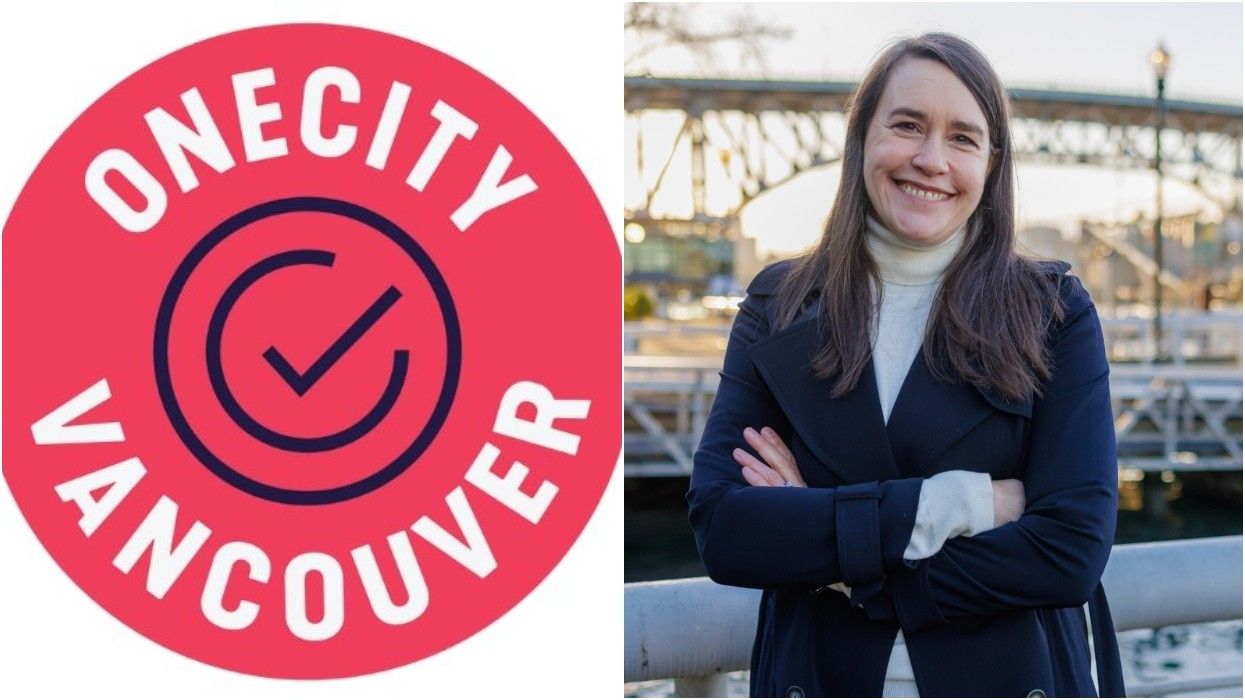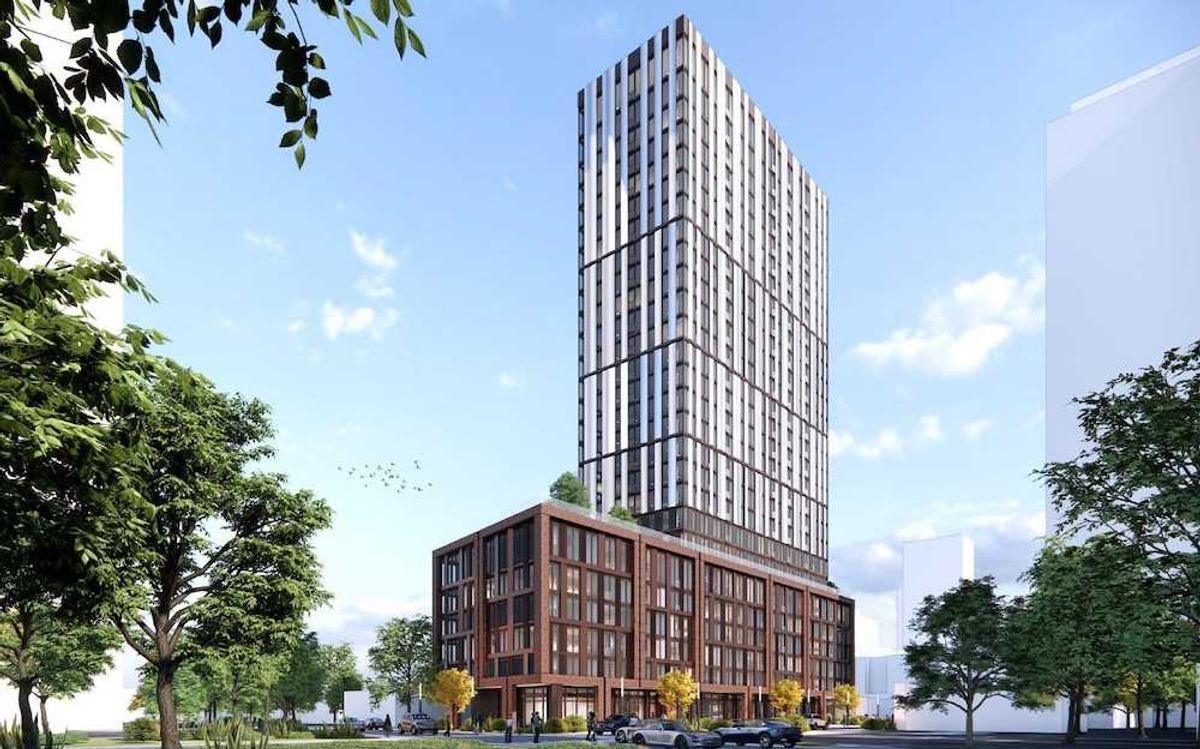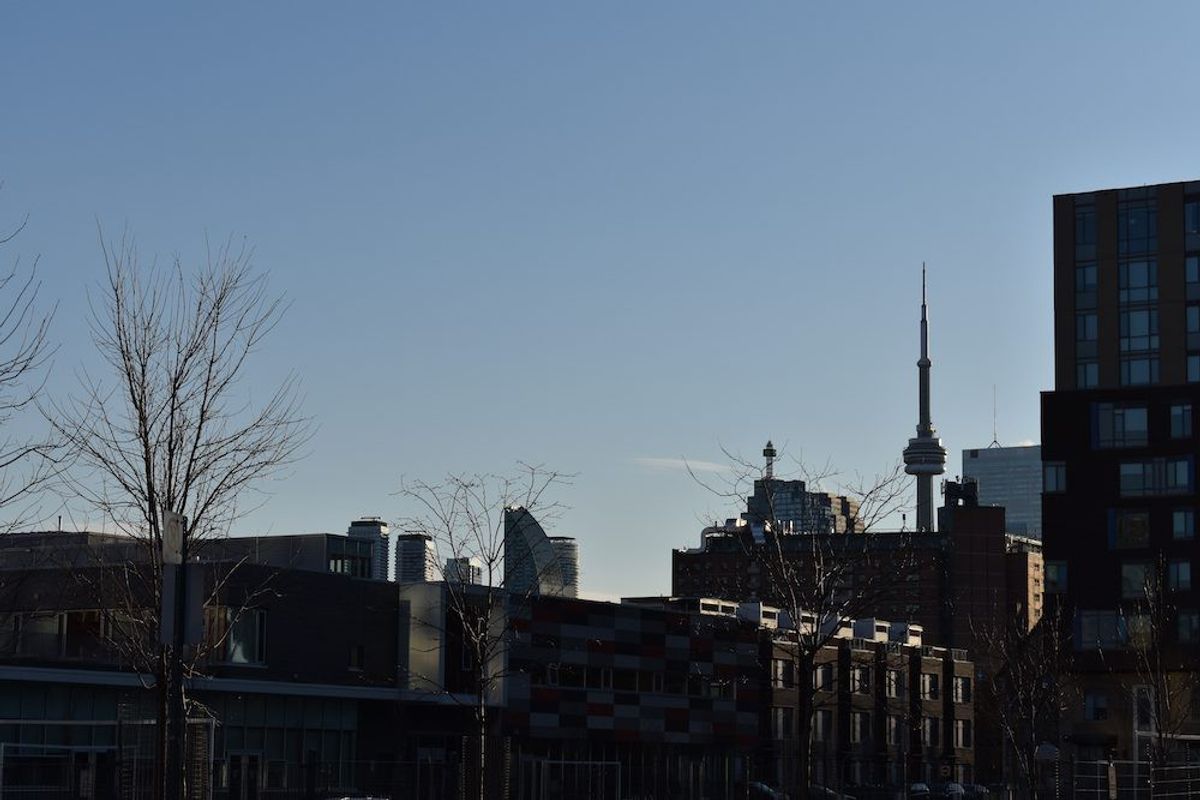In April, shortly before the federal election, the City of Vancouver held its own election to fill two seats on Council that were vacated after OneCity Vancouver's Christine Boyle was elected as an MLA in the provincial election last fall and the Green Party's Adriane Carr resigned earlier this year.
Elected to fill those two seats were COPE's Sean Orr and OneCity Vancouver's Lucy Maloney, who both secured between 33,000 and 35,000 votes — nearly twice as many as any of the other candidates and over three times as many as any candidates from ABC Vancouver, the party led by Mayor Ken Sim that still holds a supermajority of the seats on Council.
Last week saw both Orr and Maloney introduce motions related to housing. Orr introduced a motion asking the Union of British Columbia Municipalities (UBCM) to call on the Province to enshrine housing as a human right in legislation and future housing strategies, while Maloney introduced a motion asking the City to explore the potential establishment of a Tenant Advocacy Office, a revised form of the Renters Office that was abolished in 2023.
Both Orr and Maloney introduced those motions alongside the Green Party's Pete Fry, with Orr's motion ultimately being carried and Maloney's being defeated.
In an interview with STOREYS on Friday, June 6, Maloney, an Australian-born advocate-turned-politician, discussed why bringing back the Renters Office has been so important to her, the "pattern" she has seen with ABC Vancouver, and her upcoming motions.
Responses have been lightly edited for length and clarity.
I know bringing back the Renters Office was part of the OneCity platform. Can you tell me a bit about what you've heard from Vancouverites and why this motion was important to you?
Across the by-election campaign, I did a lot of door-knocking, particularly in apartment buildings. I spoke to hundreds, if not over a thousand, renters about what their priorities for the municipality are, what was important to them, and even with people in single-family homes, the number one issue in the by-election campaign was housing affordability, tenant protections, and the homelessness crisis — followed by infrastructure, concern about things like the way decisions are being made, and concern about whether they are being made for the right reasons and in the interests of the broader population. But housing was the number one issue. So, when we were working out the OneCity election platform, housing was obviously the number one priority.
Tenants really do need a focused effort to make sure that their interests are taken into account in all of the City's decision-making, policy development, projects, and any issues that are coming up with the Broadway Plan. But not just the Broadway Plan. We've got huge problems in the West End and everywhere that tenants are, with the fact that most people who have been in their housing for any length of time are incredibly stressed about how they could afford market rents if they were evicted. That was a common theme of all the tenants I spoke to. One young man described it to me: he's been in his housing for 15 years, the same building, and that building needs to be renovated in the coming few years, and he said that the fear of being evicted and not being able to afford rent in his West End neighbourhood on his current income hangs over his head like a dark storm cloud. That's pretty sad when you think about the fact that half the households in Vancouver are renters and the amount of stress people are suffering from.
The background of your motion is that this Council (albeit with a slightly different form) closed the Renters Office in 2023. Do you remember what your takeaway from that was at the time?
I think that was really unfortunate because I don't think the rest of the work that the Renters Office did was taken into account. There's been some criticism that they were handling an average of a call a day — once you take into account calls that were about things that were under the jurisdiction of provincial government bodies. But it doesn't take into account the fact that the Renters Office was doing much more work than that, particularly with coordination, and it's important to remember that, in the City of Vancouver, we currently have coordinated offices for several groups like Indigenous folks, seniors, and a whole homelessness coordination division.
Those groups perform an advocacy role to interact with senior levels of government to get grant contributions, or any other support and coordination that you need, just to make sure that the interests of those groups are taken into account where it's needed. So it's nothing new, it's nothing different, it's just that by abolishing the Renters Office in 2023 and declining to reintroduce it, it's almost as though the governing party doesn't see renters as a vulnerable group worth putting a focused effort into protecting. The reason why that's significant is that we do have a homelessness crisis and the Renters Office is one of the tools in our toolkit to prevent people from falling into homelessness, especially people who have a reduced capacity to find out what their rights are, or people for whom English is their second language, seniors who are maybe uncomfortable using technology, or busy parents that are struggling to afford their housing and working two jobs and looking after kids. There are people who find the system of finding out what your rights are and how to enforce them so impenetrable that they just give up.
Your motion was only asking for staff to report back on options and viability, yet the motion was still defeated. What do you think happened? Why do you think the governing party won't even let this get to the point of having staff look into it?
Yeah, that's odd, because I think it's worth trying to identify steps and work out how we can better support tenants. But it's a mystery to me. I think it's always worth finding out information and where we stand with such a crucial group of people. It makes me feel as though the lessons that could have been learned [from] the by-election results, which were pretty clear, haven't been taken in by ABC, so we'll see how that turns out for them.
Unfortunately, in recent months, ABC has decided to pause net new support housing, they have declined to require just compensation from the Clifton Hotel owners for the loss of SRO units, they've decided not to pursue a supportive housing development at 8th and Arbutus, they've declined to extend the tenant protections across the whole city. And it's really extraordinary that ABC would vote unanimously to support the declaration of housing as a human right and in the very next motion decline to reestablish the Renters Office. It wouldn't have cost a particularly large amount to do a study and there are staff who have enforcement of tenant protections as part of their role, so it wouldn't have been the same amount of money as establishing it from scratch. It would have just been a coordinated, consolidated approach and who knows what we might have found out from staff preparing a report.
You mentioned these things last week on X and said "This is a pattern." How would you sum up this pattern you're seeing?
The pattern I'm seeing is that ABC is having many opportunities to address our homelessness crisis and to prevent it from becoming even more severe than it currently is and every time they are voting in the opposite way than they should be to reduce the severity of the problem. That affects everybody. It affects, obviously, first and foremost people who are homeless, but it also affects everything we want to do with our public spaces in the city. I understand that we're spending over $80 million a year in managing the homelessness crisis. That's a huge cost to taxpayers. Healthcare is the number one line item of our provincial budget, which as we know is in bad condition at the moment. So every time we want to do a project like the one we discussed this week, the Granville Street Plan, we always have calls to not do it on the grounds that it will be unsuccessful as a result of homeless people needing to spend time there. That's a problem. And I can tell you that when we have people who are homeless and aren't having their most basic needs met, it's another contributing factor to people experiencing mental health crises, so it's all connected and the only way we're going to get ourselves out of a homelessness crisis is to house people and to prevent people from tipping into homelessness in the first place.
Councillor Fry introduced a motion in 2023 asking the City to track demovictions in the Broadway Plan area that was ultimately defeated. Is there any interest in trying that again? It seems like concern about that has only grown since then.
That's exactly right. People are increasingly being moved out of their low-rise rental accommodation. The Broadway Plan tenant protections are good, but it's very important that city staff focus on monitoring developer compliance with their obligations and to make sure that people's rents are being topped up and that they are being returned to their new accommodation afterwards.There are so many things that a Renters Office could potentially be doing, including just troubleshooting to make sure that things aren't going off the rails and we're not having tenants running into problems.
The OneCity platform also said that you will fight Mayor Sim's ban on net-new supportive housing. What will that look like?
It's an ongoing battle to really highlight the decisions that are being made and communicating them to the residents of Vancouver so that they know what's happening — and, where possible, push back on the decisions.
I know that we are in a difficult position at the moment with construction costs having gone up so much. I'm really worried that some of the projects that we're creating may never see the light of day because of the way they pencil out financially. I don't want to increase costs and put developments at risk at all. There are lots of things that we can look at to try and help that situation, like reducing permit processing times, reducing steps that might be unnecessary in the approval process, and, where we can, influence development fees to make sure that they are minimized as much as possible — we don't have power over all of that. Where we can, we really need to make sure that these projects go ahead, but we can't just say the only thing we're prepared to sacrifice is looking out for tenants. That always seems to be the thing that we cut first and it has a real human cost.
Are you working on anything else at the moment that you can share? Any upcoming motions?
I've got a few things coming up. I've got a big list of work that I'd like to get done. I'm working through that, with how to get information and the best way to make sure my motions are going to be effective. Now that I've got the first big one out of the way, I'm really raring to go.
I was so thrilled to be able to vote on things like the Jericho Lands ODP and even the Granville Street Plan this week. I was really thrilled to be able to move amendments in relation to transport and accessibility. Just being in here and having a direct influence and being able to represent people whose voices aren't always heard very loudly is really indescribably wonderful.
I've got a big spreadsheet and I've got a few things that I want to do coming up. I've got a motion that I'm working on that relates to mental health and one that relates to low-to-medium-rise housing in some areas of the city where it isn't allowed at the moment and where I think makes a lot of sense. And I'm looking forward to working with the other opposition councillors and maybe even ABC councillors on some issues that are of huge interest to me that I think are going to be of great benefit.
On a personal note, we're closing in on two months since you were elected. How has it been for you personally and how has it been working with the other members of Council?
Well, I knew what I was getting myself into because I have been a very active advocate and I already had constructive working relationships with everyone on Council. I also have talked a lot with Pete Fry and Rebecca Bligh and Christine Boyle and Adriane Carr and all the ABC councillors about what it's like. I've been following Council closely for a long time so I'm pretty familiar with how things work already. I've got a really good academic and work background that sets me up to pick things up quickly. I've worked in government, I'm a former lawyer, I have worked in business, I've got an MBA, and I've been advocating in Vancouver for many years, so I'm very lucky to be able to pick things up quickly.
I'm not used to the rules and procedures. It's a very artificial way of working because all I'm interested in doing is working with whoever is interested to get things done and being a politician and working with the procedural rules takes a bit of getting used to. I had never contemplated being a politician before until a few months ago. That's a pretty steep learning curve, but I've got lots of amazing support from my party and people who are very experienced and they supported me really well and it's just a matter of me fumbling my way through procedure sometimes.
I had two briefings with staff today and it's absolutely fascinating. Even just during the campaign, the people who make themselves available to OneCity to provide briefings on all the different subject matter areas is really extraordinary. For somebody that loves learning about my community, it's an incredible life experience and opportunity.




















